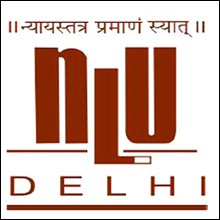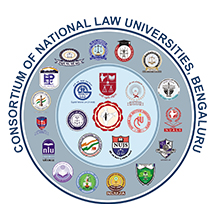
Family Law Course Details - Fees, Subjects, Syllabus, Duration, Eligibility, Career Scope
What is Family Law
Family law handles legal matters that arise between family members. Family law works on cases such as divorce, adoption, guardianship, and emancipation. It oversees family estates, mediation sessions, and legal counsel. It is a body of law related to all the family issues and relationships between families. This law mainly deals with issues related to marriage, divorce, children, treatment of children in the family, quarrels in the family, and economic matters of the family.
Candidates after completing this course can pursue various careers in the field of law and related disciplines. Students who want to become a family lawyer can opt for this course as the best option. Family Law course typically involves clients being represented in divorce, annulment, child custody, marital separation, and alimony.
Family Law- Important Dates and Events
- 7th December 2024- CLAT result out
- 9th December 2024-CLAT 2025 Counselling Registrations Started
Family Law Course Details
| Particulars | Values |
|---|---|
Branch Name | Family Law |
Degree | UG (BA LLB, BBA LLB) PG (LLM) PG Diploma |
Duration | UG ( 3 years and 5 years) PG ( 1-2 years) |
Eligibility | LLB ( Graduate with 50 per cent of aggregate marks from a recognised board) Integrated LLB (10+2 with 50 per cent of aggregate marks from a recognised board) LLM (Bachelor of Law Degree with 50 per cent of aggregate marks) |
| Admission Process | Integrated LLB (Entrance exams like CLAT, LSAT, AILET) LLM (Entrance exams like AILET, IPU CET) |
Top Entrance Exams | ILI CAT, CLAT PG, AILET, PU BA LLB |
Course Fees | LLM(Rs 1,00,000 to Rs 4,00,000 ) |
Semesters | LLB ( 6 semesters) Integrated LLB (10 semesters) LLM ( 2-4 semesters) |
Career options | Family Lawyer, Junior Attorney, Senior Attorney, Family Advocate, Divorce Lawyer, and Family Law Advisor |
Average Salary | Rs. 3.5 LPA (Family Advocate Lawyer) |
Recruiting Companies | AECOM, Ameriprise Financial, Ex Libris, Clarivate, D. E. Shaw & Co., L.P. India, Citi, Tata Communications, Kenil Management Services, Anaqua, Epiq Systems, Inc. are the top companies hiring now for Family Law Attorney jobs. |
Top Law NIRF Ranking 2024
Students are advised to choose the law institute based on the NIRF ranking 2024. Generally, National Law Institutes maintain top positions and rankings depending on the educational facilities and the institute's stature. In the table below, students will find a list of top Law institutes based on NIRF Ranking 2024.
| Top Law Colleges | NIRF Rankings (2024) |
|---|---|
1 | |
2 | |
3 | |
4 | |
5 | |
6 | |
7 | |
8 | |
9 | |
10 |
Eligibility Criteria (UG & PG) of Family Law
Candidates should meet the eligibility requirements of the desired course before applying for admission. A degree from a recognised college is required to pursue a career in family law. Candidates for this position must enrol in colleges that offer family law courses. The following are the eligibility requirements. These requirements are critical in scientific trials because they define the affected family relationships more in the population under investigation.
Eligibility Criteria for UG Courses
Candidates interested in pursuing a course at the undergraduate level must meet the eligibility requirements specified by the institute. The eligibility requirements will be mentioned in the programme brochure or on the official website of the course. For a UG course, the candidates must qualify for their 10+2 examination with a minimum aggregate score of 45-50 per cent from a recognised board.
| Eligibility Parameters | Details |
|---|---|
| Educational Qualification | 10+2 from a recognised institute in India |
| Minimum aggregate requirements | 50 per cent aggregate score (5-10 per cent relaxation for candidates belonging to the reserved categories) |
| Entrance exam | AILET, LAWCET, and CLAT are popular entrance examinations |
Top Entrance Examinations for UG Courses
There are certain entrance exams that the candidates have to clear in order to get admission to the undergraduate course in the field of Family Law. Some of the top undergraduate entrance exams are CLAT UG, AILET, LSAT and TS LAWCET.
| Exam Name | Exam Level | Conducting Body | Exam Schedule |
|---|---|---|---|
National-level | Consortium of NLU's | ||
National-level | Pearson VUE | ||
National-level | NLU, Delhi | ||
State-level | State Common Entrance Test Cell - Maharashtra State | - |
Eligibility Criteria for PG Courses
Family Law is offered at the postgraduate level in various degrees such as LLM, students must clear the eligibility criteria required by the chosen institute to qualify for admissions. For a postgraduate course, candidates need to have a Bachelor’s degree in Law with a minimum aggregate percentage of 50 per cent and they must also clear the entrance exams specified by the institutes.
| Eligibility Parameters | Details |
|---|---|
| Educational Qualification | Bachelor's degree from a recognised institute in India |
| Minimum aggregate marks | 50-60 per cent (5-10 per cent relaxation for candidates belonging to the reserved categories) |
| Entrance Examinations | CLAT PG, AILET PG |
Top Entrance Exams for PG Courses
Candidates wishing to study the Family Law course at the postgraduate level must clear the below-mentioned entrance examinations to be eligible for admission. Some of the entrance exams at the postgraduate level are CLAT PG and AILET PG.
| Exam Name | Exam Level | Conducting Body | Exam Schedule |
|---|---|---|---|
| CLAT PG | National-level | Consortium of NLUs | CLAT PG Exam Schedule |
| AILET PG | University-level | National Law University, Delhi | AILET PG Exam Schedule |
College Predictors VIEW ALL
Scope of Family Law in India and Abroad
Disputes involving marital affairs, maintenance, adoption, guardianship, and other issues fall under the purview of family law and the Family Court. A master's in family law can open doors for you in the educational world, allowing you to pursue a career as a professor or lecturer in a college or university for teaching law subjects, especially in family law and its discipline. Candidates after studying for a degree in Family Law can become Family Lawyers, Divorce Lawyers and Legal Advisors.
Course Fees Family Law
| Minimum Fees | Maximum Fees | |||
|---|---|---|---|---|
| Private | Government | Private | Government | |
| PG | ||||
Course Subjects
Family law subjects can be taken at UG and PG levels. The subjects can change from a selection of specialisations as they learn different subjects from different specialisations. For an undergraduate course, the candidates need to complete their 10+2 examination with an aggregate score. They also need to appear for relevant entrance examinations specified by the desired institute. Similarly, for a postgraduate course, candidates need to graduate with a Bachelor’s degree in Law with a valid percentage.
Family Law Syllabus for UG Courses
Family Law as a specialisation is not offered at the undergraduate level, but it is offered as a subject. Some of the topics covered in the subject are Sources of Hindu Law, Marriage, Polygamy, the Role of Family Courts in Resolution, and the Concept of Adoption. In the table below, we have mentioned the syllabus from Osmania University.
| Units | Subjects |
|---|---|
Unit I | Sources of Hindu Law Debts and alienation of property Joint Family Property Coparcenary Property Powers and Functions of Karta |
Unit II | Marriage Importance of Institution of Marriage under Hindu Law |
Unit III | Conditions of Hindu Marriage Polygamy Ceremonies and Registration Remedies under the Hindu Marriage Act Restitution of Conjugal Rights Nullity of marriage Role of Family Courts in Resolution |
Unit IV | Concept of Adoption Historical Perspectives of Adoption in India Law of Maintenance Law of Guardianship The Hindu Adoption and Maintenance Act The Hindu Minority and Guardianship Act |
Unit V | Succession The Hindu Succession Act Notional Partition Classes of heirs The Hindu Succession (AndhraPradeshAmendment) Act,1986 Succession to the property of Hindu Male and Female |
Family Law Syllabus for PG courses
The course curriculum of Family Law at the postgraduate level depends on various factors. Some of the subjects offered in the postgraduate level in the field of Family Law are System, Scope and Sources of Family Law, Marriage and Matrimonial Remedies, Nuclear and Extended Family, and Law and Justice in the Globalising World. In the table below, we have listed the LLB syllabus at Amity University.
Semester- I | |
Legal English and Research Methodology | Comparative Public Law |
Law and Justice in the Globalising World | Family Law- I ( System, Scope, Sources and Schools) |
Family Law- II ( Marriage and Matrimonial Remedies) | - |
Semester- II | |
Family Law- III ( Nuclear and Extended Family rights) | Family Law- IV ( Penal Laws on Family Affairs) |
Family Law- V ( Family Property and Succession) | Family Law- VI ( Family Disputes resolution) |
Case Law studies | Research Dissertation and Viva Voce |
Field Visit | - |
Careers in Family Law
There are many career options for graduates, they can apply for several job roles. They must choose the job role depending on their skills and experience. In the table below we have mentioned the career options along with the job description.
| Job Profiles | Job Descriptions |
|---|---|
Family Lawyers work on cases such as divorce, adoption, guardianship, and emancipation. They oversee family estates, mediation sessions, and legal counsel. To be successful in this role, the candidate must be an excellent communicator with strong negotiation and debating skills. | |
A legal advisor advises clients on legal matters, documents, and decisions. He or she typically specialises in a specific area of law, remaining in that field for the majority or all of their career. | |
Divorce lawyer | A divorce attorney is a lawyer who specialises in divorce or adjudication proceedings type of lawyer. He or she conducts lawsuits or provides legal advice. |
Upcoming trends
Due to technological advancements, there have been many upcoming trends. Virtual consultations and court hearings have become a norm. AI and other new-age tools are being used to analyse case studies and predict their outcomes. Nowadays, the major focus is on mental health and well-being for individuals.
- Use of AI tools
- Focus on mental health and well-being
- Legal Tech
- Changes in child custody and support
- Shared Parenting
Job Profiles and Top Recruiters
Students who have a degree in Family Law can work in both private and public sectors. They also sometimes operate individually. They possess in-depth information to work in various legal institutes. In the table below, we have mentioned the top recruiters in the field of Family Law.
Top Recruiters
- Trinity Legal Partners
- MZM Legal LLP
- Daksh Associates
- Kashyap Partners & Associates
- Vaish Associates
- Sagar Associates
- Rishabh Gandhi and Advocates
Average Salary
The average salary after getting a degree in Family Law is to pursue various career options with a handsome salary. There are various factors on which the salary depends such as the location of the company, skills and expertise of the candidate, and job profile. In the table below, we have mentioned the salary of top career options after a Family Law course.
| Job Profiles | Annual Salary |
|---|---|
Family Court Advocate | Rs. 3.2 LPA |
Legal Advisor | Rs. 5.9 LPA |
Divorce lawyer | Rs. 3.5 LPA |
Note: The aforementioned salary is for reference purposes, the actual salary may vary depending on the skills, job profile, and location of the company.
Required Skillset for Family Law
Family Law, like any other field, requires certain skills to excel academically and professionally. To be a successful family lawyer, you must have all or some of the below-mentioned skills. Possessing these skills will help the candidates in their careers as professionals.
- Analytical skills
- Time Management
- Organisation Skills
- Technical Skills
- Creative Skills
- Research Skills
Course Curriculum for Family Law
Family law is the study of laws that govern family life and domestic relationships. Divorce, child support, child custody, and adoption are all examples of family law. Aspirants interested in pursuing a career as a family lawyer can enrol in a Family law course.
The course curriculum of Family Law provides students with the law and equips them students with the ability to deal with difficult issues, understand human behaviour, and analyse real-life cases. The course curriculum of Family Law consists of the below-mentioned subjects.
- Children's law
- General Practice
- Appellate Practice
- Understanding Cases
- Inquisitive
- Strategic competence
Popular Family Law Entrance Exams in India
Frequently Asked Questions (FAQs)
Question: Is a family law degree a good career option?
Answer :
Yes, there is always a need for a family law professional. Divorce, alimony, separation, adoption, and other legal services are always in high demand. As a result, it is an efficient career option.
Question: What is the eligibility for pursuing LLB?
Answer :
Yes, candidates pursuing three-year LLB programs, on the other hand, must have completed a bachelor's degree in any discipline to enrol in integrated legal programs such as BA LLB, BBA LLB, BSc LLB, and BCom LLB, candidates must have passed Class 12.
Question: What are the subjects involved in a law degree at UG level?
Answer :
The subjects depend on the electives or streams they choose. Here are the few subjects family law-1, human rights and duties, Marriage Ceremonies and proof of Marriage, The distinction between Shia & Sunni Law of Divorce and Essential Conditions of Muslim Marriage.
Question: What is the salary range for a family lawyer?
Answer :
Family lawyer salary will be starting from Rs 6,00,000 and when they get the experience in the specified field it may go to Rs 14,00,000 per annum.
Question: What are the entrance exams for pursuing a law degree?
Answer :
Candidates have to attempt these entrance exams which help the candidate to get admissions into reputed universities. A candidate who wants to pursue a law degree needs to attempt the entrance exams like CLAT, AILET, MHCET, LAWCET, and LSAT.
Question: What are the skills required for a family lawyer?
Answer :
These are the skills required to Strong written and verbal communication skills, time management, critical thinking and analysis, and so on are required.
Question: What are the career opportunities after LLB?
Answer :
There are various opportunities after LLB degree, and one can choose from the job opportunities like Lawyers, public lawyers, legal counsel, legal advisor, and legal researcher.
Question: What are the top universities for law colleges?
Answer :
There are various top law universities which offer the family law course, here are a few universities like Amity University, Jindal Global Law School, Sonepat, Banaras Hindu University, and NALSAR.
Question: Who is eligible to do a family law course?
Answer :
Students after passing class 12th are eligible to do a law course by writing law entrance exams like LAWCET, AILET, CLAT, and LSAT.
Question: What is family law?
Answer :
Family law is the branch of study which includes the body of law that governs family relationships, including marriage and divorce, child custody, and related economic matters.















